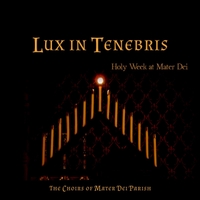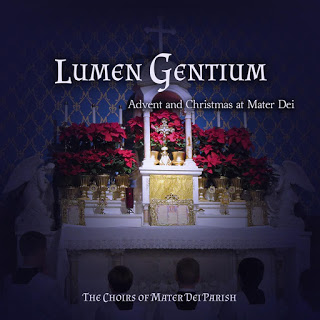The Liturgical Year is filled with great Catholic music treasures; some of the most beautiful of these treasures we hear during the season of Lent. Spem in alium (“Hope in any other“) is a 40-part motet composed by Thomas Tallis in the year 1570. It’s not a Lenten motet, but the text is appropriate for Lent. The motet is written for eight choirs of five voices each, and it is widely considered to be the greatest piece of early English music.
-
Spem in alium nunquam habui Praeter in te, Deus Israel Qui irasceris et propitius eris et omnia peccata hominum in tribulatione dimittis. Domine Deus Creator caeli et terrae respice humilitatem nostram.
English Translation:
-
I have never put my hope in any other but in You, O God of Israel who can show both anger and graciousness, and who absolves all the sins of suffering man. Lord God, Creator of Heaven and Earth be mindful of our lowliness.
The motet is listed in a catalog of the library at Nonsuch Palace made in 1596 as “a song of fortie partes, made by Mr. Tallys.”
A 1611 letter written by law student Thomas Wateridge contains the following about the motet:
In Queen Elizabeth’s time yeere was a songe sen[t] into England of 30 parts (whence the Italians obteyned ye name to be called ye Apices of the world) wch beeinge songe mad[e] a heavenly Harmony. The Duke of — bearinge a great love to Musicke asked whether none of our Englishmen could sett as good a songe, and Tallice beinge very skilfull was felt to try whether he would undertake ye matter, wch he did and made one of 40 partes wch was songe in the longe gallery at Arundell house, wch so farre surpassed ye other that the Duke, hearinge yt songe, tooke his chayne of Gold from his necke & putt yt about Tallice his necke and gave yt him.
Nonsuch Palace had an octagonal banqueting hall, which in turn had four first-floor balconies. Tallis probably designed the motet to be sung in the hall with four of the eight five-part choirs singing from the balconies. How spectacular this must have been to the ear of the listener!




